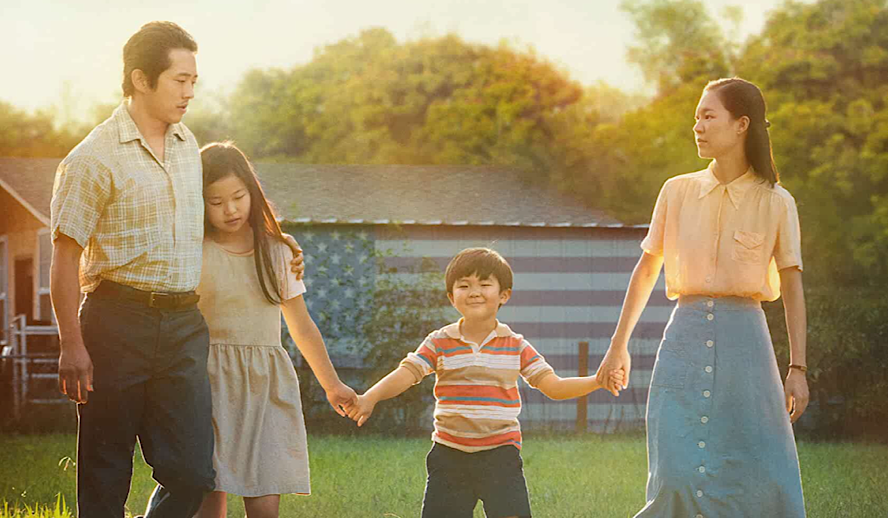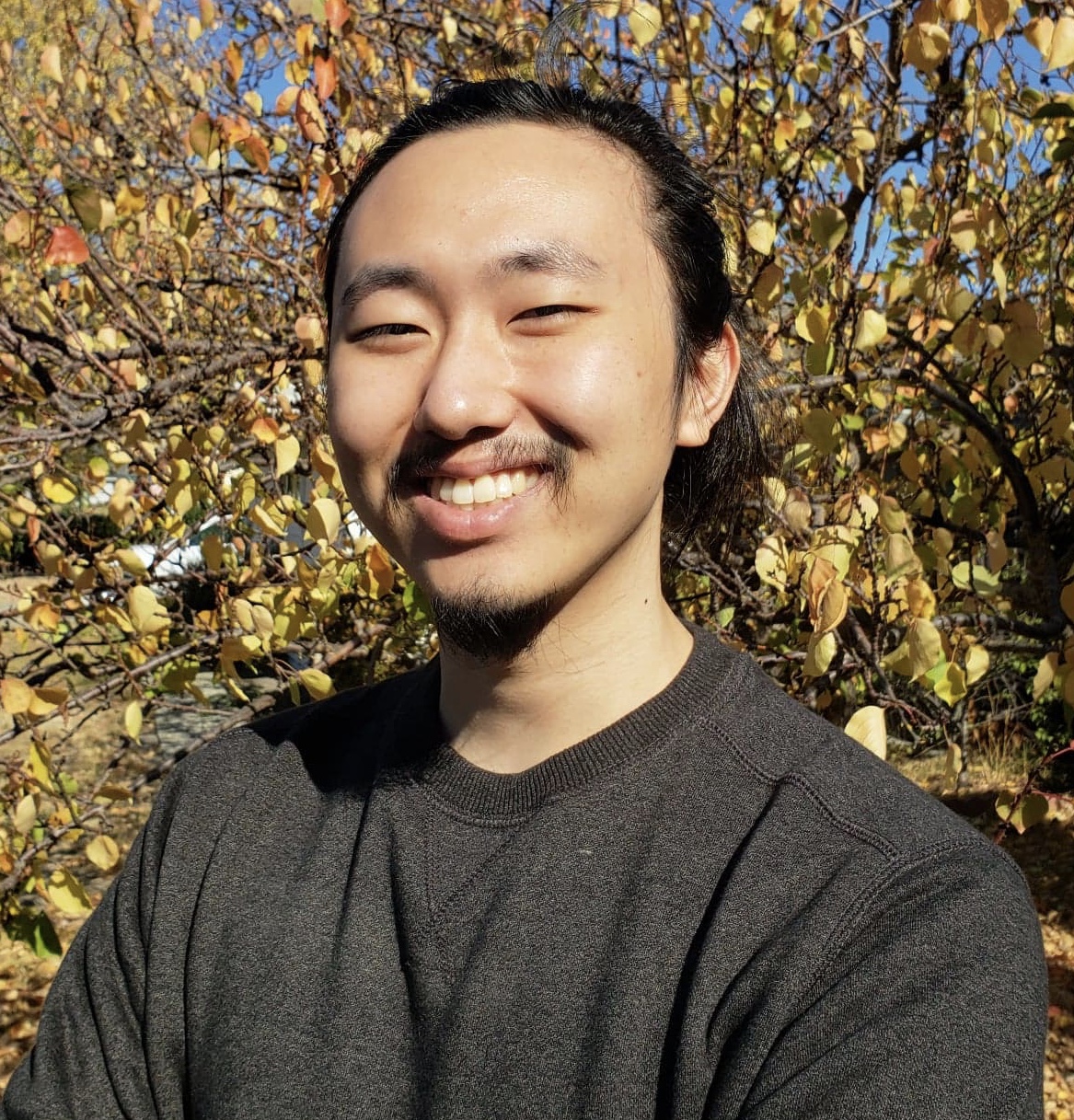Table of Contents

Photo: ‘Minari’/A24
‘Minari’ is a film about the 1980s frontier, when Reaganomics was in full swing and the American Dream was seemingly attainable through the sweat of one’s own brow. Of course, by “frontier,” I don’t mean the West, which has long been stolen away–I mean America, as perceived by those huddled masses who come to forge a new path at the expense of their homeland, people, and culture.
‘Minari’ follows one such family of dream-chasers, the Korean-American Yi family, as they move away from California to start a new life in rural Arkansas. Led by compelling performances and insightful direction by Lee Isaac Chung, who also wrote the film based loosely on his own childhood, there are few films that capture as beautifully and honestly the various struggles of an immigrant family. It all comes together to form a bittersweet portrait of the American Dream that ends up resonating deeply not only with my own identity as a Korean-American, but with anybody who has ever wished for a better life to spend in peace with their loved ones.
Related article: Korean Film ‘The Call’ Review: “Did Somebody Dial Time Travel?”
Related article: The Rise of South Korean Cinema: A Brief History of the Country’s Excellent Film Industry, What to Watch After ‘Parasite’
‘Minari’ – Moving to Arkansas
The film opens with the Yi family, which consists of Jacob (Steven Yeun), Monica (Yeri Han), David (Alan Kim), and Anne (Noel Kate Cho), arriving at their new rural Arkansas homestead, having just left California. Monica is immediately discontent by their new house, which is more of a trailer on wheels, as well as their social isolation and the poor accommodations of their rural environment.
Jacob and Monica work as chick sexers, the same employment they held back in California, and we’re shown that Jacob is very good at it–however, that’s not the life he wants to live. It becomes clear that the decision to move was mostly on him, whose dream is to escape a lifetime of chick sexing by farming.
Monica would rather move back to California and live in relative comfort, particularly because of young David’s heart problem–in Arkansas, their nearest hospital is an hour away. Daily, the children listen meekly as their parents argue bitterly, once writing “don’t fight” on a paper airplane and throwing it between them to no avail. Their marriage, like their financial stability, is on the rocks.
Subscribe to Hollywood Insider’s YouTube Channel, by clicking here.
Jacob begins sinking money into establishing a farm, on which he plans to grow Korean vegetables. He’s offered services by a water diviner, but refuses and seeks water on his own intuition. He meets Paul (Will Patton), an oddball Korean War veteran and devout Christian who ends up helping out around the farm, while Jacob and Monica continue working as chick sexers to get by.
Cross-generational Culture Conflict
Partway through the film, we’re introduced to Soonja (Yuh-jung Youn), Monica’s mother. She arrives from Korea to help watch the kids, bringing a carefree, irreverent attitude and various Korean foods and sundries.
Her relationship with her grandson David is one of the film’s highlights. He’s not only resistant to her Korean affectations, but rejects her on the grounds that she isn’t like a “real grandmother”–she doesn’t know how to cook or bake cookies, has a bit of a potty mouth, and seems to enjoy gambling more than anything. She introduces him to “hanyak,” traditional Korean medicine, which is notorious for its noisome odor–Monica insists he drinks a bowl every day, much to his chagrin.
Related article: The Power of Positivity: Ikorodu Bois + Chris Hemsworth + Russo Brothers + Sam Hargrave
Limited Time Offer – FREE Subscription to Hollywood Insider
Still, she slowly wins him over with her continued affection. She teaches David “hwatu,” a classic Korean card game, and together they enjoy “the healthy water that comes from the Mountains,” Mountain Dew. She takes him to the nearby creek where she plants “minari” seeds brought from Korea, minari being like Korean cilantro. She teaches him that minari is a useful, nutritious herb and a resilient plant, capable of growing and flourishing almost anywhere.
Powerful, Picture-Perfect Performances
To me, Yuh-jung Youn is an old, familiar face–one of Korea’s most recognizable actresses, I watched her in a myriad of Korean movies and TV shows growing up. In ‘Minari’, she’s not only the perfect fish out of water, but conveys all the love and joy of an unconventional Korean grandmother. She’s a true delight, and it speaks to the performance of her peers that she doesn’t singlehandedly steal the show.
Steven Yeun is captivating as Jacob, the prideful man who puts it on himself to provide for his family, ultimately losing sight of what’s important. It’s particularly impressive because, for the majority of the film, he speaks in Korean. You may think nothing of that fact, considering his ethnic background–I’ve heard Yeun speak Korean before, and he’s always had a distinct American accent.
Related article: Hollywood Insider’s CEO Pritan Ambroase: “The Importance of Venice Film Festival as the Protector of Cinema”
Related article: The Masters of Cinema Archives: Hollywood Insider Pays Tribute to ‘La Vie En Rose’, Exclusive Interview with Director Olivier Dahan
To play the role of the Korean-born immigrant Jacob, Yeun has nearly eliminated any trace of his American accent. Even in moments when it’s more apparent, Yeun embodies the role and speaks so naturalistically from an internalized understanding of the character that it’s not an issue.
Yeri Han, also an established Korean actress, is excellent as Monica. She’s deeply discontent, not only due to the living conditions in which she finds herself, but due to an increasingly loveless marriage and a profound cultural and social isolation.
Also noteworthy is Will Patton, who disappears into the role of Paul. Finally, Alan Kim, who plays little David, captures the shy uncertainty of a child who doesn’t really belong, and his existential awakening takes us back to our own childhoods.
Final Thoughts, Personal Notes
As a Korean-American, it’s surreal to see the familiar quirks of my culture that have largely been absent from cinema–‘Minari’ is a perfect representation of what it is to be yellow in a white world.
Related article: The Biggest Golden Globes 2021 Snubs and Film Upsets
Related article: New Releases: Your Comprehensive Guide to Every New Movie Coming Out in February 2021
In one scene, where the family attends the local church for the first time, the children experience what I would describe as the most innocent, cheeky racism I’ve yet seen on film–a well-intentioned girl approaches Anne and marvels at her exoticism. She asks Anne to stop her when she says something in her language, and then proceeds to say, “ching chong ling long….” Separately, a boy approaches David and bluntly asks, “why is your face so flat?”
It’s the kind of racism that one experiences in the same way that anybody marvels at something new and different, the kind that’s more difficult to be upset about than prejudice fuelled by hate. It’s an accurate and nuanced representation of what it’s like to be Asian-American.
Additionally, the film simply reeks of authenticity. Production designer Yong Ok Lee effortlessly captures the quirks that come with being Korean-American–Jacob showering with a “bagaji,” for instance.
These are but my personal connections to the film that resonate, but ‘Minari’ is a story that everyone can love. It’s wonderfully bittersweet, valuable in its honesty, and a breakthrough in Asian-American representation.
Cast: Steven Yeun, Yeri Han, Alan Kim, Yuh-jung Youn, Noel Kate Cho
Cinematography: Lachlan Milne | Editor: Harry Yoon
Director: Lee Isaac Chung | Writer: Lee Isaac Chung | Producers: Dede Gardner, Jeremy Kleiner, Christina Oh
By Daniel Choi
Click here to read Hollywood Insider’s CEO Pritan Ambroase’s love letter to Black Lives Matter, in which he tackles more than just police reform, press freedom and more – click here.
An excerpt from the love letter: Hollywood Insider’s CEO/editor-in-chief Pritan Ambroase affirms, “Hollywood Insider fully supports the much-needed Black Lives Matter movement. We are actively, physically and digitally a part of this global movement. We will continue reporting on this major issue of police brutality and legal murders of Black people to hold the system accountable. We will continue reporting on this major issue with kindness and respect to all Black people, as each and every one of them are seen and heard. Just a reminder, that the Black Lives Matter movement is about more than just police brutality and extends into banking, housing, education, medical, infrastructure, etc. We have the space and time for all your stories. We believe in peaceful/non-violent protests and I would like to request the rest of media to focus on 95% of the protests that are peaceful and working effectively with positive changes happening daily. Media has a responsibility to better the world and Hollywood Insider will continue to do so.”
More Interesting Stories From Hollywood Insider
– Want GUARANTEED SUCCESS? Remove these ten words from your vocabulary| Transform your life INSTANTLY
– Compilation: All James Bond 007 Opening Sequences From 1962 Sean Connery to Daniel Craig
– Do you know the hidden messages in ‘Call Me By Your Name’? Find out behind the scenes facts in the full commentary and In-depth analysis of the cinematic masterpiece
– A Tribute To The Academy Awards: All Best Actor/Actress Speeches From The Beginning Of Oscars 1929-2019 | From Rami Malek, Leonardo DiCaprio To Denzel Washington, Halle Berry & Beyond | From Olivia Colman, Meryl Streep To Bette Davis & Beyond
– In the 32nd Year Of His Career, Keanu Reeves’ Face Continues To Reign After Launching Movies Earning Over $4.3 Billion In Total – “John Wick”, “Toy Story 4”, “Matrix”, And Many More
minari, minari, minari, minari, minari, minari, minari, minari, minari, minari, minari, minari, minari, minari, minari, minari, minari, minari, minari, minari, minari, minari

Daniel Choi is a writer who’s currently pursuing a BA in Film & Television from New York University. With a background in amateur film production, Daniel is fascinated by how artists’ cultural backgrounds inform their work, subconsciously or not, and how that work is then perceived by different audiences across time and space. He joined Hollywood Insider to promote its mission statement of substantive entertainment journalism, and hopes to enrich readers’ understandings of cinema through insightful analysis.








